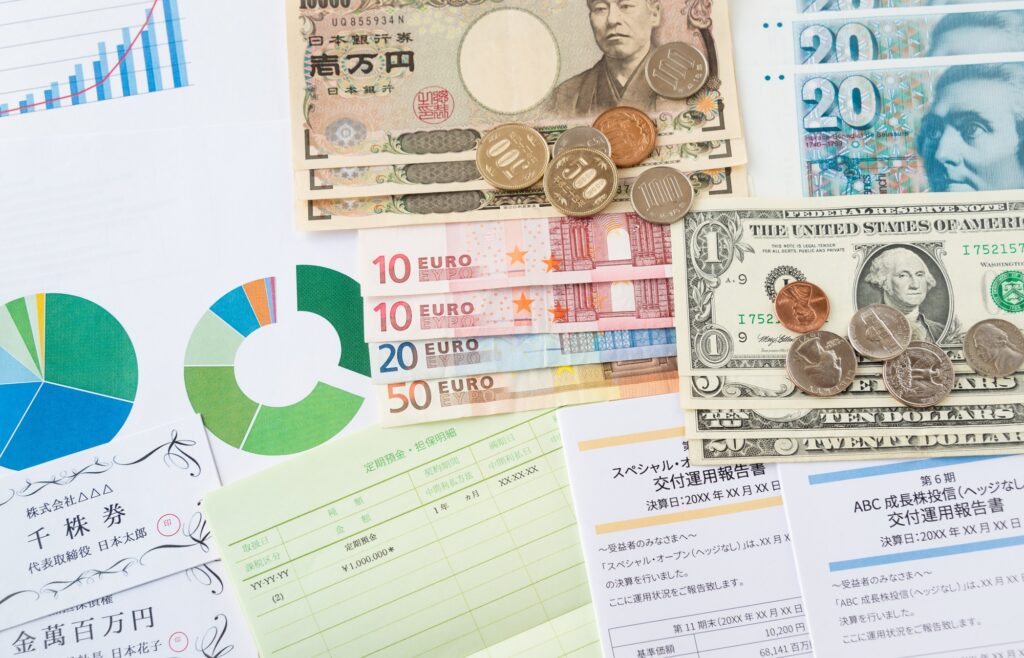What is the Elderly Welfare Law? Explaining Administrative Measures and Penalties for Violations, and Key Points for Operating Facilities
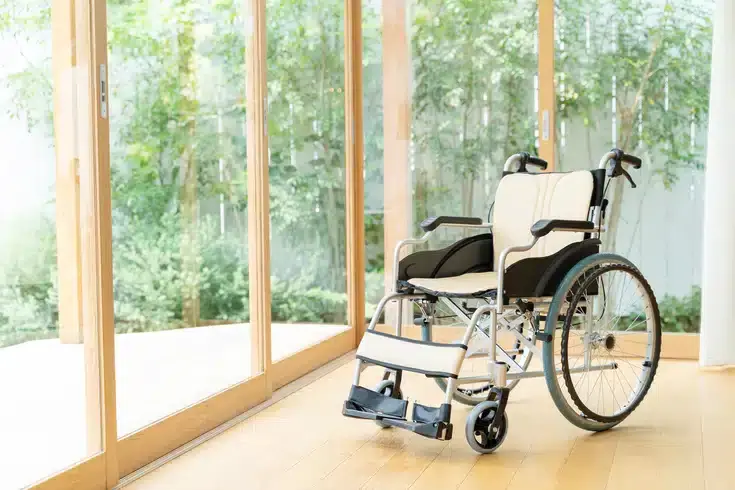
The Japanese Elderly Welfare Law is designed to create a society where senior citizens can live with peace of mind by establishing rules for the provision of care services and the operation of facilities. Care service providers and facility operators must understand these rules, as well as the penalties and administrative measures that may apply in case of violations.
In this article, we will explain the administrative measures and penalties that care facility operators should be aware of under the Japanese Elderly Welfare Law, as well as key points for providing high-quality services. It is our hope that this will serve as an opportunity for care facility managers to reacquaint themselves with the legal rules, risks, and points for smooth operation.
Understanding the Japanese Elderly Welfare Law

The Japanese Elderly Welfare Law refers to the legislation that outlines the facilities, institutions, and projects related to the welfare of the elderly. This law mandates prefectures and municipalities to develop various plans and implement support projects aimed at enhancing the welfare of the elderly.
For instance, prefectures and municipalities are required to create elderly welfare plans, which are tailored to meet the specific welfare needs of the elderly in each community. These plans include the provision of welfare services for the elderly, the development of facilities, and the securing of caregiving personnel.
Reference: Ministry of Health, Labour and Welfare | Japanese Elderly Welfare Law[ja]
The Six Services Defined by the Japanese Elderly Welfare Law
The Japanese Elderly Welfare Law (老人福祉法) outlines support services to help the elderly continue living in their familiar communities. The services defined by this law include in-home elderly care services, elderly day service programs, short-term elderly residential services, small-scale multifunctional in-home care services, dementia-friendly group living support services for the elderly, and complex service welfare projects.
Furthermore, the Japanese Elderly Welfare Law also specifies welfare facilities available for the elderly. The facilities defined under this law are elderly day service centers, short-term elderly residential facilities, nursing homes for the elderly, special nursing homes for the elderly, light-fee homes for the elderly, elderly welfare centers, and elderly care support centers.
While fee-based homes for the elderly are not categorized as welfare facilities under the Japanese Elderly Welfare Law, they are subject to its regulations. These fee-based homes provide services such as meals, care, and health management to their residents and must adhere to certain standards and regulations based on the Japanese Elderly Welfare Law.
The Purpose and Background of the Establishment of the Elderly Welfare Law
The Elderly Welfare Law was enacted in the year Showa 38 (1963), against the backdrop of the period of high economic growth. At that time, there was a population outflow from rural to urban areas and an advancement of nuclear family structures, leading to a decline in mutual assistance functions within families. As a result, the social issue that became apparent was the difficulty in providing care for the elderly, a role traditionally taken on by families. In such an environment, the Elderly Welfare Law was established to lay the foundation for elderly welfare.
The Elderly Welfare Law aims to ensure a healthy and stable life for the elderly and to promote their active participation in society. The basic principles of the Elderly Welfare Law include the maintenance of health, stabilization of life, and encouragement of social participation for the elderly.
Following the enactment of the Elderly Welfare Law, there was a rapid development of elderly welfare facilities such as special nursing homes for the elderly, nursing homes, and low-cost homes for the elderly. These facilities provided a secure living environment for the elderly and reduced the burden on their families. In addition, the systematization of services equivalent to today’s home help services, such as the dispatch of elderly home service workers, expanded the support available to the elderly in their own homes.
The Evolution of the Senior Welfare Law
In the wake of the 1973 oil crisis (Showa 48), Japan’s economic growth rate began to stagnate, putting a strain on the nation’s finances due to escalating medical costs. In response, the “Japanese Elderly Health Care Law” was enacted in 1983 (Showa 58), introducing a system where the elderly were required to cover a portion of their medical expenses, reflecting legal reforms that kept pace with societal changes.
Amendments to the Senior Welfare Law
| Fiscal Year | Amendment Details |
| Showa 48 (1973) | The “Senior Medical Expense Subsidy System,” which provided free medical care for those over 70, was established. Due to financial pressures from medical expenses, it was abolished in Showa 58 (1983) along with the “Japanese Elderly Health Care Law.” |
| Showa 53 (1978) | The short-term care project for bedridden elderly began, allowing seniors to stay in facilities for short periods and receive care. |
| Showa 54 (1979) | Day service programs started, institutionalizing the three pillars of home care: day services, short stays, and home help. |
| Showa 57 (1982) | The “Japanese Elderly Health Care Law” was established, significantly shifting elderly medical care from social welfare to social insurance, later transitioning into the Advanced Elderly Medical System. |
| Heisei 2 (1990) | The Senior Health and Welfare Plan was formulated, mandating its adoption by prefectures and municipalities. Welfare administration was expanded primarily at the municipal level, simultaneously promoting the infrastructure development of the Senior Health and Welfare Plan. |
| Heisei 6 (1994) | Elderly Care Support Centers were added to the regulations for senior welfare facilities. |
| Heisei 12 (2000) | The “Japanese Long-Term Care Insurance Law” was enacted. Unless there are special circumstances, the long-term care insurance system applies when using senior welfare facilities. Additionally, group homes and small multifunctional in-home care services were added to the Elderly Home Life Support Project. |
| Heisei 18 (2006) | The definition of paid nursing homes was changed. Before the amendment, facilities were defined as those where more than ten elderly individuals resided and were provided meals. After the amendment, the personnel standard was abolished, and the requirements changed to providing any of the following: meals, care, housekeeping such as laundry and cleaning, or health management. |
Furthermore, the implementation of the “Japanese Long-Term Care Insurance Law” significantly transformed the landscape of senior welfare. For example, the addition of group homes and small multifunctional in-home care services expanded the options for elderly care services that could be received while living at home, improving the quality of care and increasing user satisfaction.
What is the Long-Term Care Insurance Law? Differences from the Welfare Law for the Elderly
The Long-Term Care Insurance Law is a legal framework designed to provide appropriate health care and welfare services to individuals in need of care. It establishes regulations related to the long-term care insurance system, care services, and long-term care insurance facilities.
Article 1 of the Long-Term Care Insurance Law states that its purpose is to ensure that individuals who become in need of care due to physical or mental changes associated with aging can lead independent and dignified lives by providing the necessary health care and welfare services.
The Long-Term Care Insurance Law is not exclusively for the elderly; it allows individuals of any age who require care to potentially access services based on this law.
On the other hand, the Welfare Law for the Elderly primarily targets seniors over the age of 65 who have difficulty with daily life, aiming to improve their welfare. This law is intended to take measures necessary for the elderly to lead physically and mentally healthy lives. It sets out rules for municipal system development, regulations for private businesses, and the establishment and operation of facilities for the elderly.
Since its enactment in Heisei 12 (2000), the Long-Term Care Insurance Law has been periodically amended to keep pace with the changing times. The first amendment took place in Heisei 18 (2006). Subsequent revisions have been made every three years, introducing preventive benefits for those in need of support and strengthening regulations on care service providers.
Particularly in 2024, amendments are scheduled to deepen and promote the community-based integrated care system, improve productivity in the care field, and ensure the sustainability of the system. Details of the amendment are explained in the following article.
Related article: [Enforcement in Reiwa 6 (2024)] The Amendment of the Long-Term Care Insurance Law: Background and Measures Care Providers Should Take[ja]
Home Care Services Based on the Japanese Elderly Welfare Law
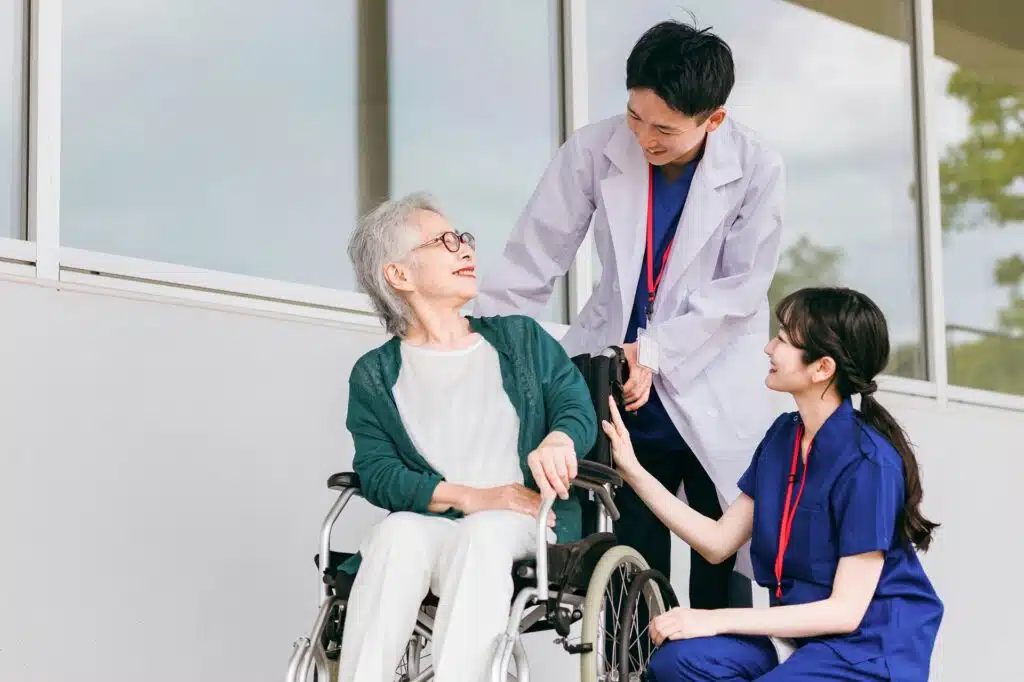
The Japanese Elderly Welfare Law stipulates home care services to support elderly individuals in continuing to live in their familiar local communities. The main home care services are as follows, with an explanation of the unique support each provides.
Elderly In-Home Care Services
Elderly In-Home Care Services are designed for individuals over the age of 65 who experience mental or physical disabilities that interfere with their daily lives. To support living at home, these services include assistance with elimination, bathing, and eating, as well as help with laundry, cooking, and cleaning. Additionally, we provide consultation and advice related to everyday life activities.
These services are provided based on the Japanese Long-Term Care Insurance Act and are positioned as part of the home-visit care services. They include scheduled and on-demand home-visit nursing care and nighttime home-visit care. Furthermore, for those not covered by the Long-Term Care Insurance Act, there are unique services offered by local municipalities.
Elderly Day Service Business
Elderly day services refer to caregiving services provided at facilities during daytime hours. These services are aimed at individuals over the age of 65 who live at home, especially those with mental or physical disabilities or those in need of care.
The goal is to maintain and improve the quality of daily life through support with toileting, bathing, meals, as well as offering consultation and advice on caregiving. Under the Japanese Long-Term Care Insurance Act (介護保険法), these services correspond to preventive care day services (デイサービス) or day care services.
Short-Term Residential Services for the Elderly
Short-Term Residential Services for the Elderly refer to services designed for temporary accommodation in facilities when at-home care becomes challenging. These services are utilized when caregivers suddenly fall ill or need a rest. Under the Japanese Long-Term Care Insurance Act (介護保険法), services such as Short-Term Admission for Preventive Care and Short-Term Residential Care (also known as Short Stay) are included.
Small-Scale Multifunctional In-home Care Services
Small-Scale Multifunctional In-home Care Services refer to a system designed to support living at home while also offering the option of day services or short-term stays at a facility as needed. This service is aimed at individuals over the age of 65 who have mental or physical disabilities. Small-Scale Multifunctional In-home Care Services provide flexible care by combining day services with short-term accommodation. Tailored support is provided according to the individual’s living situation.
Under the Japanese Long-Term Care Insurance Act (介護保険法), services such as Preventive Small-Scale Multifunctional In-home Care or Small-Scale Multifunctional In-home Care are included.
Dementia-Friendly Elderly Group Living Support Services
Dementia-Friendly Elderly Group Living Support Services are designed for individuals over the age of 65 who are suffering from dementia. In these services, residents live together in a facility where they receive support with daily activities such as bathing, eating, and toileting.
These facilities provide specialized care for elderly individuals with dementia and fall under the framework of the Japanese Long-Term Care Insurance Act, specifically the Preventive Care for Dementia and Dementia-Friendly Group Living Care (Japanese Dementia Elderly Group Homes) and Dementia-Friendly Group Living Care services.
Comprehensive Service Welfare Business
The Comprehensive Service Welfare Business refers to the provision of care support that allows individuals to continue living at home while utilizing a combination of multiple services. This business model integrates services such as small-scale multifunctional in-home care and visiting care, with the primary goal of supporting the elderly to continue living comfortably in their own homes.
Within the Japanese Long-Term Care Insurance Act (介護保険法), this is positioned as Nursing Small-Scale Multifunctional In-Home Care (Comprehensive Services).
Services at Facilities Based on the Japanese Elderly Welfare Law
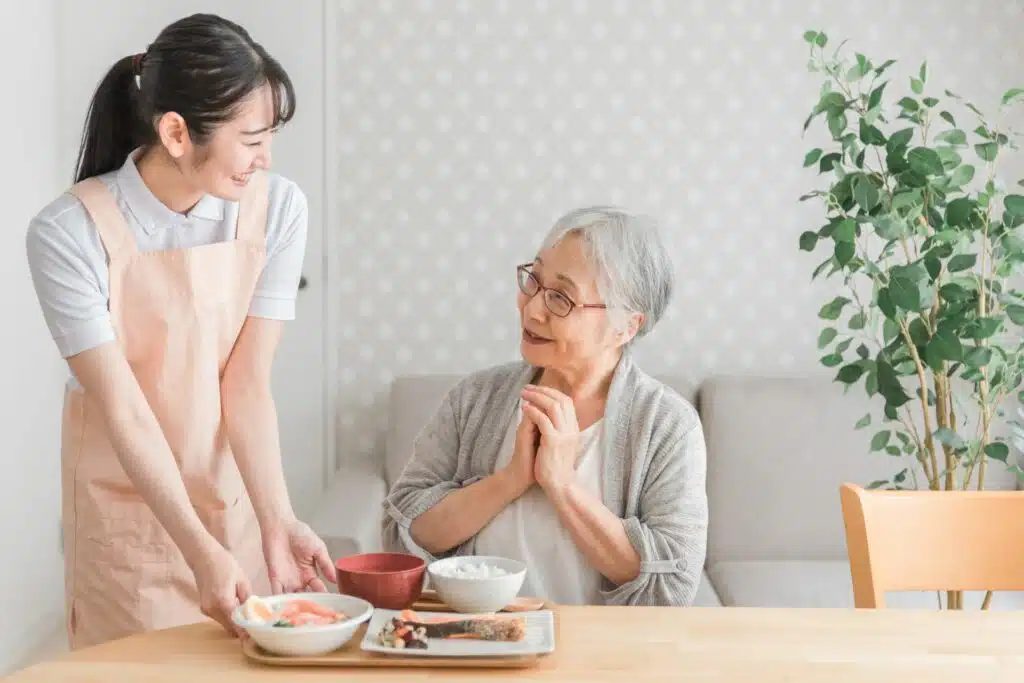
There are seven types of facility services provided under the Japanese Elderly Welfare Law. These services refer to the care provided to residents in facilities such as special nursing homes for the elderly.
Senior Day Service Centers
Senior Day Service Centers provide necessary care and support on a day-return basis for individuals over the age of 65 who find it difficult to carry out daily life due to physical or mental disabilities. The services offered include basic care such as bathing, toileting, and meals, in addition to assistance and care required for daily living, as well as recreational activities and functional training.
These centers operate under the Japanese Long-Term Care Insurance system as “Day Care Services (Day Service Facilities, Day Care)”.
Senior Day Service Centers are often established by public institutions such as social welfare corporations and municipalities. Many of the day care services are provided in collaboration with special nursing homes (welfare facilities for the elderly) operated by social welfare corporations.
While some centers operate independently, in all cases, they provide specialized support to ensure that the elderly can live their daily lives with peace of mind. These facilities play a vital role in supporting the elderly within the community and are indispensable to the users and their families.
Short-Term Residential Facilities for the Elderly
Short-term residential facilities for the elderly are designed for individuals aged 65 and older, or those in need of care, who temporarily cannot receive in-home care. For instance, these facilities become essential when a family caregiver falls ill or must leave home due to other commitments, making in-home care challenging. Through short-term stays, these facilities provide support with bathing, meals, daily living activities, and even offer rehabilitation and functional training services.
Care Homes for the Elderly
Care Homes for the Elderly are designed for individuals over the age of 65 who find it challenging to live at home due to physical, mental, or financial reasons, regardless of their need for care. These facilities provide comprehensive support, including functional training, meal assistance, and daily living activities.
Special Nursing Homes for the Elderly
Special Nursing Homes for the Elderly are facilities designed for seniors who require intensive care that is difficult to provide at home. These homes offer assistance with meals, toileting, and bathing, in addition to support for social life, health management, and rehabilitation services.
The target residents for Special Nursing Homes for the Elderly are those aged 65 and over who need constant care due to physical or mental disabilities and are classified as requiring care level 3 or higher.
Low-Cost Elderly Homes
Low-cost elderly homes cater to individuals over the age of 60 who find it challenging to live at home due to family circumstances or housing conditions. These facilities provide living support free of charge or at a low cost for elderly people who are relatively capable of living independently. Low-cost elderly homes are categorized into three types: Type A, Type B, and Care Houses, each offering tailored support to their residents.
Type A targets individuals over 60 who cannot live with family and feel insecure about living alone, yet lack family support. It provides meals and caregiving assistance. Type B has essentially the same criteria as Type A, but does not include meal provision. Care Houses are divided into General Type (Independent Type) and Care Type (Special Facility) based on the need for care. The General Type offers meals but not caregiving services, whereas the Care Type provides both meals and comprehensive living and caregiving support.
The policy is set to phase out Type A and B low-cost elderly homes, with no plans for further expansion. Instead, the focus will shift towards consolidating these services into Care Houses.
Senior Welfare Centers
Senior Welfare Centers offer comprehensive support to the elderly, providing services either for free or at a low cost. These centers aim to help seniors maintain their health, enhance their education, and participate in recreational activities.
There are three types of Senior Welfare Centers: Special Type A, Type A, and Type B.
Special Type A facilities offer comprehensive services operated by municipalities. These services include a wide range of support such as consultations on daily living, health promotion, occupational and employment assistance, functional training, educational courses, and support for senior club activities.
Type A facilities, also operated by municipalities or social welfare corporations, offer services that are somewhat more limited than those of Special Type A. They focus primarily on consultations covering general daily life, excluding guidance on health promotion.
Type B facilities complement the functions of Type A facilities, providing supplementary services to those offered by Type A centers.
Elderly Care Support Centers
Elderly Care Support Centers are facilities established to assist seniors living at home and their families. These centers respond to inquiries from elderly individuals who require assistance or may need it in the future, and they comprehensively coordinate the provision of care and welfare services.
Specifically, they facilitate coordination and adjustment with municipal administrative agencies, care service providers, and home care support businesses to access various health and welfare services, including those covered by the Japanese Long-Term Care Insurance system.
Home Care Support Centers serve as reliable resources for local seniors and their families, acting as a hub to address various care-related needs. They also support families who often face increasing caregiving burdens by introducing appropriate services and providing assistance, thereby helping to alleviate the stress and anxiety associated with caregiving.
Regulated Entities under the Japanese Elderly Welfare Law: Fee-Based Nursing Homes
A fee-based nursing home is a facility established to help the elderly maintain their physical and mental health and lead a stable life. These facilities are required to provide at least one of the following life support services: meals, nursing care, housekeeping, and health management.
Depending on the needs and circumstances of the residents, various types of fee-based nursing homes are available, each offering different services and fee structures. While fee-based nursing homes are not classified as elderly welfare facilities under the Japanese Elderly Welfare Law, they are subject to its regulations.
There are three types of fee-based nursing homes:
Nursing Care Fee-Based Nursing Homes
Nursing care fee-based nursing homes primarily cater to the elderly who require nursing care. They offer a wide range of services including meal provision, laundry, cleaning, physical care such as toileting and bathing, functional training, recreational activities, and social clubs. These homes must meet certain care service standards and be designated as “Specified Facility Resident Life Care” providers.
Housing-Type Fee-Based Nursing Homes
Housing-type fee-based nursing homes provide life support services such as meals, laundry, and cleaning, but do not offer nursing care services by the facility staff. If residents require nursing care, they must contract with external home-visit nursing services. Many housing-type facilities are equipped with visiting nursing stations, day services, and home care support offices, creating an environment conducive to receiving at-home services.
Health-Type Fee-Based Nursing Homes
Health-type fee-based nursing homes cater to relatively independent elderly individuals and provide housekeeping support and meal services. They are well-equipped for health maintenance, often including facilities such as hot springs and sports gyms. In cases where residents become in need of nursing care, they may need to vacate the premises, although there are instances where they can move to an adjacent nursing care facility.
Notification Requirements for Starting, Changing, Suspending, or Discontinuing Home Care, Welfare Services, and Fee-based Homes for the Elderly
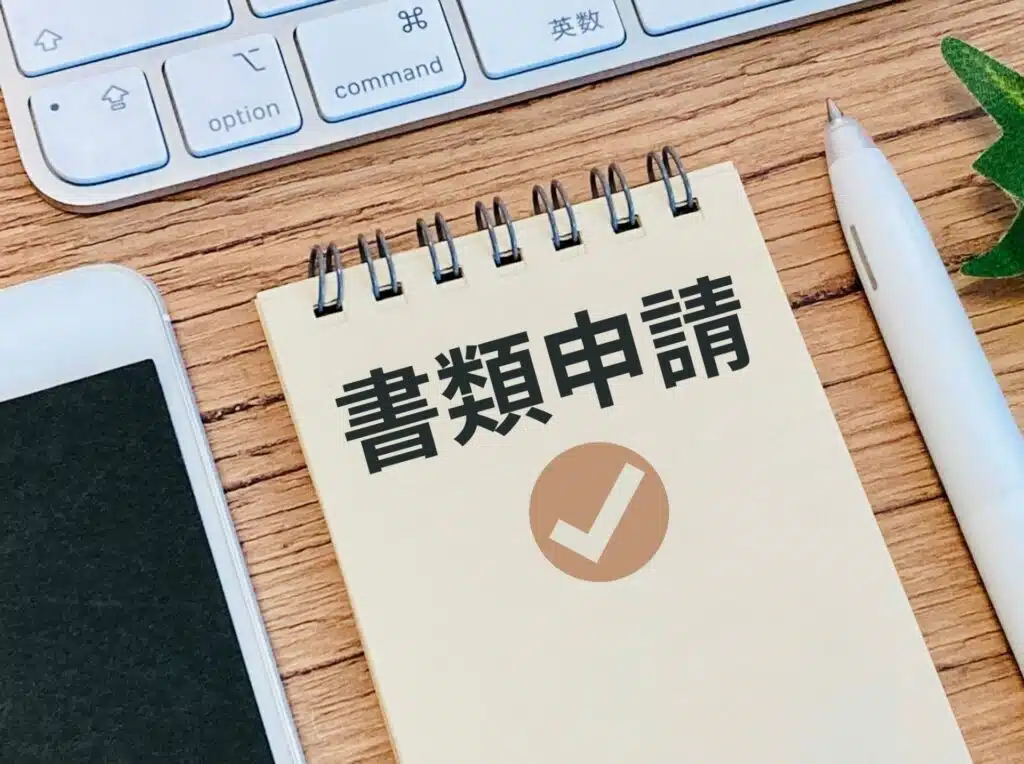
Notifications based on the Japanese Elderly Welfare Law are procedures that service providers offering elderly welfare facilities and services for the elderly must follow when starting, changing, or discontinuing their activities. These providers are obligated to report to the prefectural or municipal office, such as the Elderly Welfare Division, located in the area where the business is situated. Notifications are crucial for ensuring transparency in operations and guaranteeing the provision of appropriate services to the elderly.
When making a notification, the following information is required:
- Type and details of the business
- Information about the manager (name, address, name and location of the business office)
- Basic articles of incorporation (important provisions such as the articles of association)
- Number and job descriptions of staff
- Information about key staff members (names and backgrounds)
- Business area (region where services are provided)
- In the case of a project commissioned by the local government (name of the region)
- Planned date for starting (or changing) the business
Service providers involved in elderly welfare are required to properly execute these legal procedures to ensure the provision of appropriate services and contribute to the local community.
Administrative Measures and Penalties for Violating the Elderly Welfare Law

The Japanese Elderly Welfare Law stipulates penalties for violations. This section explains these penalties.
Fines and Imprisonment
The Japanese Elderly Welfare Law includes penal provisions to ensure the proper operation of elderly welfare services. For instance, operating an elderly welfare facility without a permit or submitting false reports can result in fines or imprisonment.
For example, operating an elderly welfare facility without a permit can lead to imprisonment for up to one year or a fine of up to 500,000 yen.
Improvement Orders
Article 18, Paragraph 2 of the Japanese Elderly Welfare Law grants specific authority to prefectural governors. If businesses such as dementia-friendly group living support projects or elderly welfare facilities violate laws, the governor can take appropriate measures.
If a provider of dementia-friendly group living support is found to be in violation of regulations, the prefectural governor can order the operator to make improvements. Failure to comply with an improvement order can result in imprisonment for up to six months or a fine of up to 500,000 yen.
Business Suspension Orders
Prefectural governors can issue orders to suspend or abolish the business of nursing homes or special nursing homes if the operator violates laws, orders, or dispositions, or if the facility no longer meets legal standards. When issuing such orders, the governor is obligated to make a public announcement.
Furthermore, when a prefectural governor orders the abolition of a nursing home or special nursing home’s business or revokes its establishment permit, they are required to consult the opinions of the local social welfare council in accordance with Article 19, Paragraph 2 of the Japanese Social Welfare Law.
In addition, if the operator of a fee-based elderly home violates the business restriction or suspension order as stipulated in Article 29, Paragraph 14 of the Japanese Elderly Welfare Law, they may be subject to imprisonment for up to one year or a fine of up to 1,000,000 yen.
Key Points for Operating in Accordance with the Japanese Elderly Welfare Law (老人福祉法)
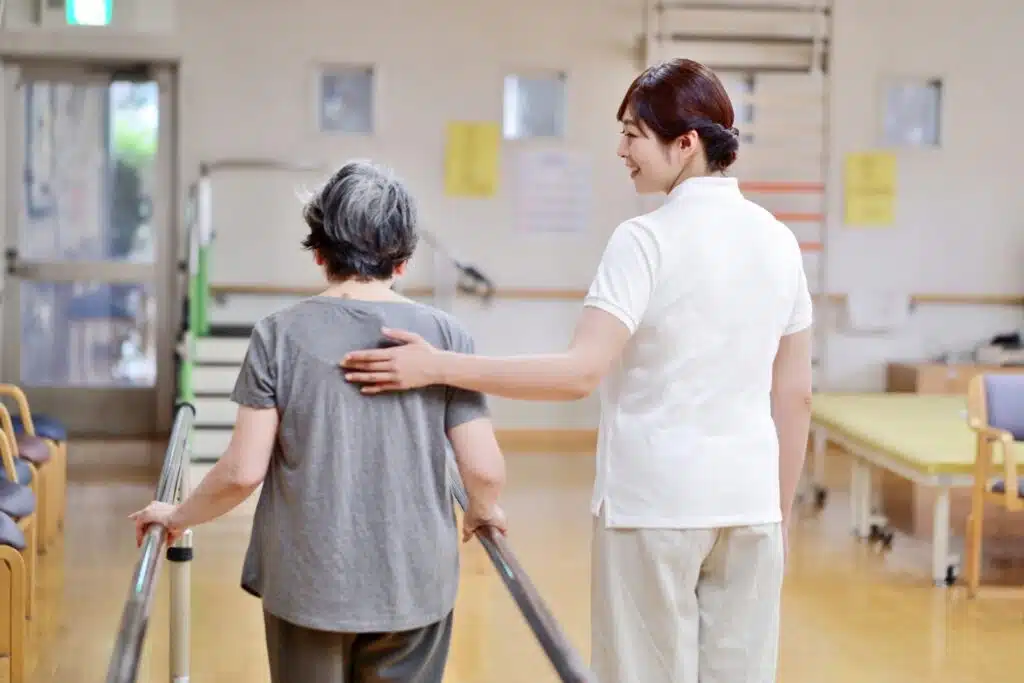
When making various notifications under the Japanese Elderly Welfare Law, it is essential to grasp several important points.
Notify When Starting, Changing, Discontinuing, or Suspending Business
For operators of elderly home care services and elderly welfare facilities, it is necessary to notify the prefectural governor when starting, changing, discontinuing, or suspending business operations.
The types of elderly home care services subject to notification include home care support for the elderly, day service centers for the elderly, short-term residential facilities for the elderly, small-scale multifunctional home care, dementia care group homes, and complex service welfare businesses.
Furthermore, for elderly welfare facilities such as nursing homes for the elderly, special nursing homes for the elderly, low-cost elderly homes, fee-based elderly homes, urban-type low-cost elderly homes, elderly care support centers, and elderly welfare centers, it is also necessary to file a notification with the elderly welfare division of the municipality where the business is located.
Please confirm the notification submission office and method in advance through the website or contact point of each local government, or by phone. Also, make sure to check the required documents and necessary formats in advance. If there are any uncertainties, proceed with the procedures while consulting with the responsible staff to ensure smooth progress.
Submit Along with Notifications Required by the Japanese Long-Term Care Insurance Law (介護保険法)
When applying for or notifying under the Japanese Long-Term Care Insurance Law, submitting the notifications required by the Japanese Elderly Welfare Law at the same time can save you the trouble of preparing duplicate documents. Additionally, this may allow you to omit some documents from submission.
Consider Other Laws and Amendments
The Japanese Elderly Welfare Law has undergone many amendments in response to changes in society and the environment since its enactment. It is also necessary to consider the consistency with other related laws, such as the Japanese Health Services for the Elderly Law and the Japanese Long-Term Care Insurance Law. Violating these laws may result in penalties, so it is crucial to make appropriate notifications according to your business activities. As related laws can be complex and difficult to understand, it is advisable to consult with experts for the procedures.
Summary: Understanding the Elderly Welfare Law and Responding Appropriately
To smoothly operate a facility, it is essential not only to comply with laws and regulations but also to provide high-quality services that meet the needs of the users. It is necessary to have a correct understanding of the Elderly Welfare Law and to respond accurately to the contents of legal revisions.
Many facilities struggle with notifications to local governments and responding to legal amendments. In such cases, it is advisable to consult with a lawyer.
Guidance on Measures by Our Firm
The caregiving industry is governed by a complex web of laws, including the Japanese Long-Term Care Insurance Act, the Japanese Elderly Welfare Act, and the Japanese Companies Act. Monolith Law Office serves as legal advisors to the Japan National Federation of Caregiver Service Providers and to caregiver service providers in prefectures nationwide, possessing extensive know-how related to legal matters in the caregiving business.
Areas of practice at Monolith Law Office: Corporate Legal Affairs for IT & Startups[ja]
Category: General Corporate
Tag: General CorporateIPO



